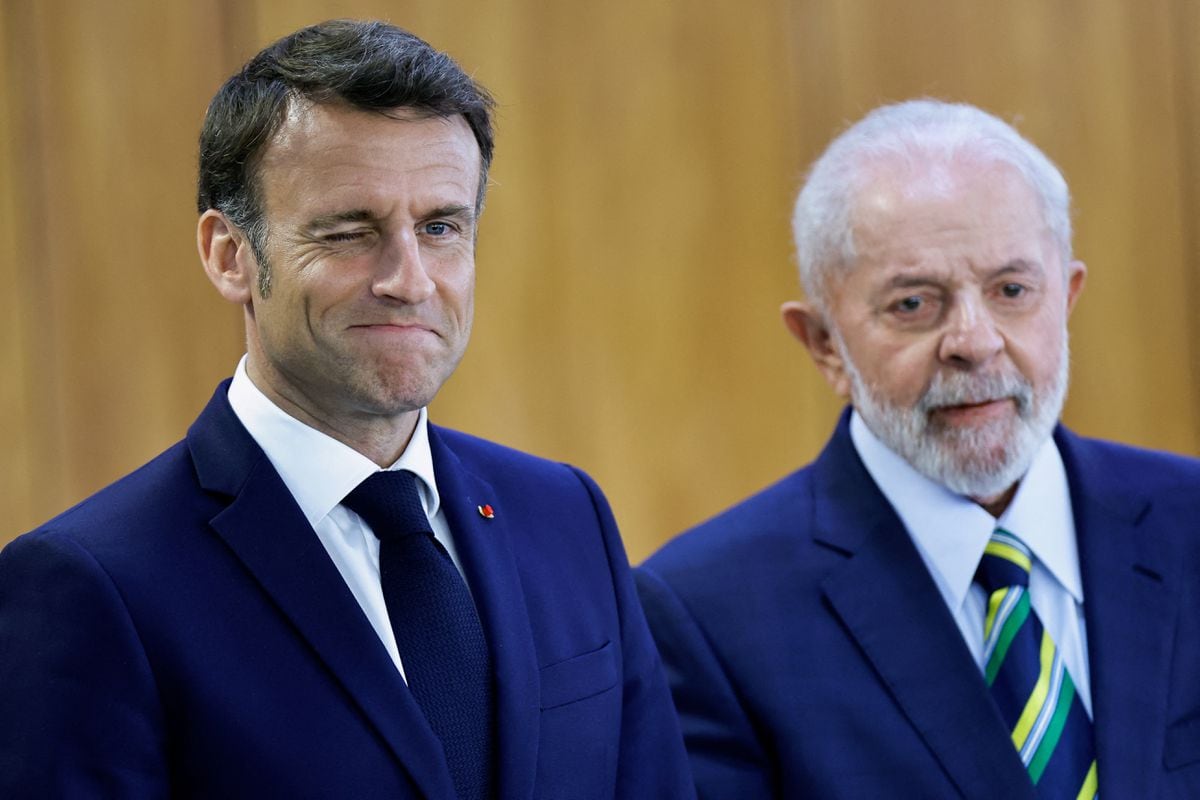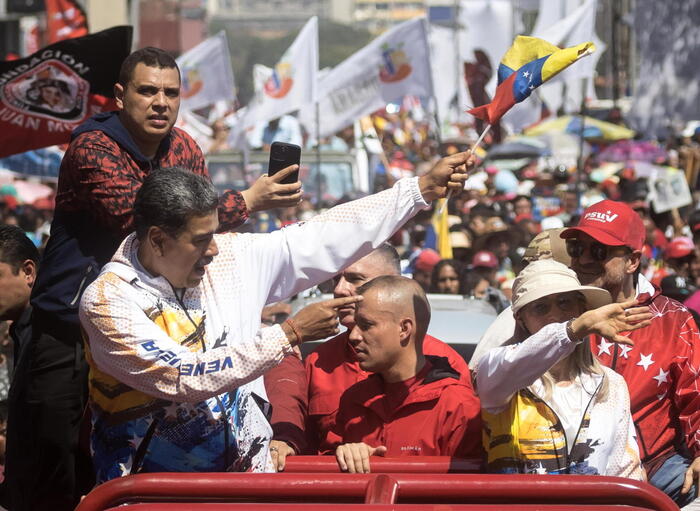Four years ago, 13 citizens competed for the presidency of Brazil in an election marked by the banning of the candidate who was leading the polls: former president Luiz Inácio Lula da Silva.
Many things could be said about Jair Bolsonaro, but this is the most important: if any of the other 12, and not him, had been elected, close to half a million more Brazilians would still be alive.
It was explained last year by several scientists whom the parliamentary investigation commission on the covid-19 pandemic called to testify in the Senate.
Among them, the microbiologist Natalia Pasternak, who cited a work by Pedro Hallal, published in the
Lancet,
which estimated that two-thirds of the deaths could have been prevented.
After taking sworn statements from officials, former ministers, scientists, doctors, directors of vaccine manufacturers and other companies, and other witnesses and specialists, analyzing documents, commissioning expert reports, and other proceedings, the parliamentary commission accused Bolsonaro of very serious crimes.
Among them, extermination, persecution and inhumane acts to cause intentional suffering, for which he recommended the intervention of the International Criminal Court in The Hague.
Dr. Pasternak, cited this month by
The Jerusalem Post
as one of the 50 most influential Jewish personalities in the world, signed an open letter with more than 200 Jewish intellectuals from her country denouncing that "the government of Jair Bolsonaro has strong Nazi leanings and fascists”.
It is not a trivial accusation.
Bolsonaro, whose electoral slogan is “Brazil above all” – copied from the Nazi slogan
Deutschland über alles –
has a long history of association with Nazism.
He campaigned alongside a city councilor candidate who was masquerading as Adolf Hitler.
He defended students from the Military College of Porto Alegre who had expressed their admiration for the Führer
.
His Secretary of Culture plagiarized, in an official speech, broadcast with a Wagner opera in the background, entire paragraphs of Joseph Goebbels.
His government campaigned against the quarantine with the phrase “Work liberates”, written at the entrance to Auschwitz.
Bolsonaro received with State honors the German far-right Beatrix von Storch, granddaughter of Hitler's Finance Minister.
And what about the neo-Nazi flags that flew at his rallies, or the white supremacist symbols graciously worn by his children, his advisers and even himself?
And the motorcycle parades with which he imitates Mussolini, whom he has also quoted on Twitter?
It is no coincidence that David Duke, former leader of the Ku Klux Klan, has said that Bolsonaro "sounds like us."
But we are not just talking about symbols;
Also corpses.
If plagiarizing Goebbels ––or systematically employing his propaganda tactics–– is appalling, much worse is what Eduardo Pazuello did as Minister of Health, plagiarizing Eichmann.
The general took office when his two predecessors, who were doctors, refused to participate in crimes against humanity.
He said his role would be to “obey” and he did, coolly carrying out the president's orders that caused the deaths of hundreds of thousands of people.
Even delaying the purchase of syringes for vaccination or the shipment of oxygen cylinders to Manaus while the sick died asphyxiated.
What moves Bolsonaro is a sick drive for death and the conviction that there are disposable human beings, who "are not even good for procreation", as he said about blacks,
or "depreciate property," as he said about having a gay neighbor.
Dehumanization is crucial;
no one explained it better than Primo Levi.
Brazil lost almost 700,000 lives, not because of mistakes or inefficiency, but because of conscious political decisions whose results could not have been otherwise.
As so many families watched their loved ones die, the president joked about the deaths and even imitated a patient without oxygen as if he were funny.
That death drive defines him.
"My specialty is killing," Bolsonaro said in 2017 when he was a candidate.
Already president, he relaxed the rules for buying weapons and made shooting clubs proliferate, he eliminated traffic regulations that saved lives on the highways, he gave cover to the predators of the Amazon that kill indigenous people and environmentalists, he protected the illegal militias and he endorsed the easy trigger of the police that massacre blacks and the poor left programs against gender violence without a budget and made hate speech against the LGBT population a state policy.
The social, health, educational, environmental and civilizational tragedy of these four years is immense.
Bolsonaro increased hunger, inequality, deforestation and corruption while he reduced the number of university students, environmental protection, funding for science and workers' rights.
He destroyed the international image of Brazil.
He put conspiracy theorists, military men, fundamentalist pastors, thieves and unbalanced people in the ministries who would not pass the Selectividad exam or an interview for a private job.
He brought back political persecution, the exile of opponents, censorship, the siege of the free press and artists, hatred and the dehumanization of minorities as scapegoats.
But nothing compares to the number of lives lost and the cult of death and weapons that have been the common thread of his government.
His followers identify themselves by imitating a pistol with their right hand and, in recent months, they have already killed two militants of the Workers' Party.
Four years ago, many of us who already denounced Bolsonaro when he was just "that deputy who hates gays" warned that this was not a normal election.
After the parliamentary coup against Dilma Rousseff and Lula's political imprisonment, there would be no way to be, but the candidacy of a fascist obsessed with death, apologist for the military dictatorship, admirer of a well-known torturer and author of sentences such as "I don't rape you because you're ugly, you don't deserve it” or “I'd rather my son die in an accident” than knowing he's gay ––his greatest obsession–– should have set off alarm bells around the world.
Now it is clear, also in Europe: fascism is stalking us again.
It has to be stopped.
This Sunday, Brazilians return to the polls after a long nightmare.
Lula is free and, of those 13 candidates of 2018, six support him, in defense of democracy.
One of them, Geraldo Alckmin, who had led the opposition to his government and was his opponent in the 2006 elections, is now his vice-presidential candidate.
The Democrats formed a historic anti-fascist front.
Cornered by the polls, the current president discredits the voting system with lies, insults the judges of the Supreme Court and prepares his own assault on the Capitol.
On Sunday night it will be imperative that all democratic governments in the world are prepared to back up what the polls say and warn the would-be dictator that they will not tolerate a coup.
If Lula manages to save Brazilian democracy from Bolsonaro and his thugs, she will then face an even greater challenge: to rebuild a devastated country like after a war that has not yet finished mourning its dead.
Bruno Bimbi
is a journalist, writer and Ph.D. in Language Studies from the Pontifical Catholic University of Rio de Janeiro.
He was a correspondent in Brazil for Argentine television and is the author of
Equal Marriage
(Planeta Argentina) and
The End of the Closet
(Anaconda).
Subscribe to continue reading
read without limits
Keep reading
I'm already a subscriber

/cloudfront-eu-central-1.images.arcpublishing.com/prisa/3JVW45IEZVHXNGE3DKT5WX2IE4.jpg)





/cloudfront-eu-central-1.images.arcpublishing.com/prisa/FKMVIPMZEFFIDGMU5MJJ4OHT5M.JPG)

